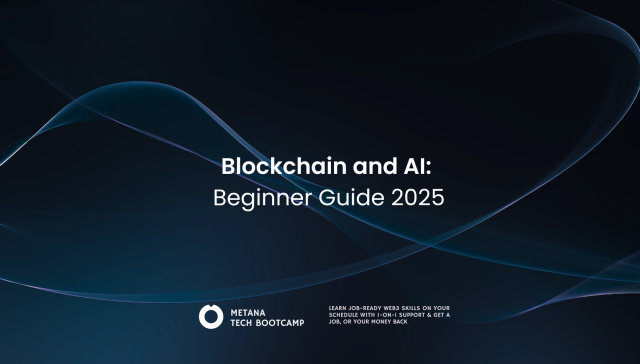“What is Software Engineering?” This question is key to understanding the digital world we live in, where every website visit and app usage is shaped by the expertise of a software engineer. In this article, we unravel this question in a manner that’s accessible to beginners, shedding light on the often invisible yet crucial work of software engineers. We’ll explore the diverse roles they play, the essential skills they need, their potential earnings, the steps to becoming a software engineer, and the exciting future prospects of this dynamic field.
Join us as we answer the fundamental question, What is software engineering?, and reveal the impactful world of the software engineer.
What is a Software Engineer?
A software engineer is an expert in the field of software engineering, a vital branch of computer science. This role encompasses the design, development, testing, and maintenance of software applications. Utilizing engineering principles and deep knowledge of programming languages, software engineers craft robust software solutions tailored for end-users.
Their work spans a wide range of applications, from designing engaging computer games to developing complex business applications, advanced operating systems, sophisticated network control systems, and efficient middleware. The career paths in software engineering are diverse, offering opportunities to innovate in various sectors like business, government, healthcare, and more.
Being a SW engineer is not only about technical prowess; it’s a blend of creativity and problem-solving that makes it both fun and challenging. With the continuous evolution of technology, the demand for skilled software engineers is on the rise. Furthermore, the shift towards remote work has opened new doors in the field, making software engineering more accessible and flexible than ever before.
What Tasks do Software Engineers do?
Software engineers are integral to the development and maintenance of software systems, using programming languages, platforms, and architectures to craft everything from captivating computer games to sophisticated network control systems. They are not just creators but also the stewards of software, responsible for ensuring its functionality and longevity.
- Designing and maintaining software systems.
- Evaluating and testing new software programs.
- Optimizing software for performance and scalability.
- Writing and testing code for efficiency and reliability.
- Ensuring software compatibility across platforms and devices.
- Establishing IT standards and creating documentation.
- Releasing regular software updates.
- Collaborating with development teams and data scientists.
- Consulting with clients and other stakeholders for software alignment.
- Recommending software upgrades.
- Presenting new software features to stakeholders.
- Engaging with clients for user experience insights and feedback.
In essence, the role of a software engineer is multifaceted, involving a blend of technical expertise, creative problem-solving, and effective communication. They are the driving force behind the software that powers our digital world, constantly innovating and adapting to meet the ever-changing technological landscape.

Types of Software Engineers
The field of software engineering is diverse and multifaceted, with professionals bringing different technical expertise to various aspects of computer systems, networks, and application development. Central to this field are two primary categories of software engineers: applications software developers and systems software developers.
Applications Software Developers
These developers focus on designing user-centric software. They are the creative minds behind applications for various platforms like iOS, Android, Windows, and Linux.
- Key Responsibilities: Conducting requirements analysis, developing user-facing applications, and regular software updates.
- Development Focus: Engage in both front-end and back-end development.
- Collaboration: Work closely with graphic designers, project managers, marketers, and customer success teams.
Systems Software Developers
They specialize in constructing the underlying systems that power user-facing applications. This includes building and maintaining operating systems and network frameworks.
- Key Responsibilities: Integrating different software products onto a single platform, general IT management, systems architecture design, and enforcing IT standards.
- Development Focus: Primarily involved in back-end development.
- Collaboration: Collaborate with data scientists, senior systems architects, development teams, and senior management.
These roles illustrate the breadth of the software engineering field, with each type playing a crucial role in the digital landscape. Applications developers enhance the user experience with functional and intuitive software, while systems developers ensure the seamless operation and integration of the technology that underpins these applications.
Software Engineer Skills and Salaries
The success of a software engineer hinges on a blend of technical proficiency and soft skills, and the compensation in this field reflects the high demand for these skilled professionals.
Key Skills of a Software Engineer:
- Technical Expertise in programming languages (Java, Python, C#), software development methodologies (Agile, Scrum), databases, and operating systems.
- Problem-Solving Ability for complex and innovative solutions.
- Attention to Detail in coding for error reduction and quality assurance.
- Teamwork and Collaboration skills for team-based project success.
- Continuous Learning to keep pace with evolving tech trends.
Check our recent article on SW engineer skills here.
Salaries of Software Engineers:
As of 2024, the average salary in the United States is around $139,702 per year. This figure varies based on factors like experience, location, and specialization. In tech hubs like San Francisco and New York, the averages are higher, at about $171,000 and $155,000 respectively. These salaries reflect the range across different roles in software engineering, from entry-level to senior positions.
Salaries in this field are influenced by expertise, industry sector, and economic conditions. Many software engineers also receive additional benefits such as stock options and bonuses, especially in larger tech companies.
While we’re discussing their salaries, it’s also interesting to note the specific salary trends for full stack developers, a role that encompasses both front-end and back-end development skills. For detailed information on full stack developer salaries, you can refer to this article.

How to Become a Software Engineer
The path to becoming a software engineer today is diverse, mirroring the tech industry’s evolution. Traditional educational routes include obtaining a computer science or related degree from two- or four-year colleges, providing a solid understanding of software engineering fundamentals. Degrees in science and math-related fields, and some community college courses, also offer avenues into software development.
Recent years have seen a surge in coding bootcamps, such as Metana’s Full Stack Software Engineer Bootcamp, which provide intensive, practical training in language-specific programming and IT fundamentals, tailored to current job market demands. These bootcamps are designed for quick industry entry, covering in-demand skills and available in various formats to suit different learning styles.
For newcomers, preliminary courses are beneficial before tackling advanced bootcamp curriculums. Post-training, building a professional portfolio and refining a resume to showcase new skills and experiences are key steps. The journey to software engineering, whether through traditional degrees, bootcamps, or a blend of both, is defined by continual learning and adaptation to stay abreast of technological advancements.
The Future of Software Engineering
The future of software engineering is shaping up to be both dynamic and integral in the technological landscape. As we look ahead, several key trends and opportunities emerge:
- Technological Advancements in AI, machine learning, and cloud computing.
- Growing Demand in healthcare, finance, education, and entertainment sectors.
- Remote and Flexible Work Opportunities.
- Continuous Learning and Innovation in the field.
For aspiring software engineers, this landscape offers a path filled with learning, growth, and the chance to significantly impact various aspects of life and business. The journey into software engineering, as explored in this article, is the first step towards a career that is not just about coding, but about shaping the future.
Full Stack Software Engineering at Metana
Metana’s Full Stack Software Engineer Bootcamp offers an intensive program for both beginners and intermediate learners focusing on JavaScript, Node.js, and React. Spanning 16-22 weeks with a 20-hour weekly commitment, the bootcamp covers HTML, CSS, JavaScript, and advanced front-end and back-end development, including electives in Web3 and AI/ML. It features hands-on learning, live classes, and team projects, culminating in a capstone project. Emphasizing career readiness, Metana provides interview preparation, job search assistance, and a job guarantee. The admission process evaluates English proficiency and candidate motivation. Overall, the bootcamp is designed to thoroughly prepare students for successful careers in software engineering.

FAQs
What is software engineering?
- Software engineering is the discipline of designing, developing, testing, and maintaining software applications and systems.
What programming languages should a beginner in software engineering learn?
- Beginners should consider starting with languages like Python, Java, or JavaScript due to their widespread use and learning resources.
How long does it take to become a software engineer?
- It typically takes 3-4 years to complete a bachelor’s degree in computer science. However, learning can continue with experience and ongoing education.
What’s the difference between SW engineering and computer science?
- Software engineering focuses on applying engineering principles to software development, while computer science is more about the theory and fundamentals of computational algorithms.
Are SW engineering jobs in high demand?
- Yes, software engineering jobs are in high demand across various industries due to the increasing reliance on technology and software solutions.
What is the best way to stay updated with tech trends?
- Following tech blogs, attending industry conferences, and participating in online forums and communities are great ways to stay updated.
Can SW engineers work remotely?
- Many software engineering roles offer the flexibility to work remotely, especially in companies that support digital work environments.
What is cloud computing?
- Cloud computing is the delivery of different services through the internet, including data storage, servers, databases, networking, and software.
How does artificial intelligence impact SW development?
- AI impacts software development by introducing capabilities like machine learning, predictive analysis, and automation into various applications.
What is the role of a project manager in SW projects?
- A project manager oversees software projects, managing timelines, resources, team coordination, and ensuring that project goals are met.





